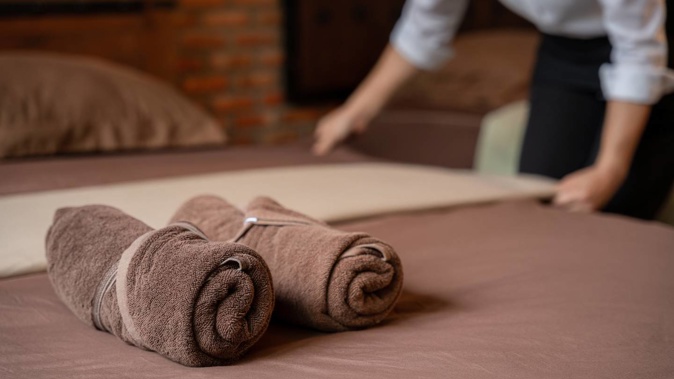

A massage therapist who was accused by two women of inappropriate touching after his “invasive” techniques involved rubbing near “sensitive areas” has been ordered to work on his listening skills.
Deputy Health and Disability Commissioner Rose Wall found the massage therapist, referred to as Mr C in today’s decision, breached the rights of the two women when he failed to inform them of his intended techniques and areas where he would be touching.
Inadequate information about the services Mr C was going to provide meant both women, who had seen him months apart, were unable to give informed consent and were distressed after their massage.
“I consider that [the massage therapist] failed to communicate adequately with the consumers prior to their massages,” Wall said.
“It is not sufficient to assume that a client has given informed consent because they do not object to specific actions at the time.”
Draping techniques were also in question and Wall found the massages did not meet accepted standards, and draping of both women was inadequate to maintain privacy, comfort and dignity.
The two woman received full body massages from Mr C months apart, Ms A in June 2020 and Ms B in August the same year. He advertises his business as “therapeutic Swedish massage”.
Mr C told the HDC during the investigation into his conduct that although he’s not a member of Massage New Zealand he abides by their Code of Ethics, which includes standards on informed consent.
However, Ms A said she had experienced massage from a number of practitioners, and the treatment she received in 2020 “made [her] feel uncomfortable in a way [she had] not experienced before”.
She said Mr C used inappropriate massage techniques and draping during her 90-minute session and there was little communication about what the service included.
Massage areas included her inner thigh, inter-gluteal cleft (butt crack), massage of both legs simultaneously and areas underneath her underwear.
According to Ms A she had not consented for her inner thigh to be massaged, and Mr C had moved her legs apart as he massaged “very close to the knicker line” moving his hands underneath her underwear to work on her lower back and glutes.
She said she had never had her inner-thigh massaged previously during sessions with other massage therapists and the pressure applied on her gluteal area felt uncomfortable and inappropriate.
“I have never had a massage therapist put their finger in my butt crack before or since,” she said.
Mr C said there was no expression of discomfort during the session and a signed consent form before the massage stated it was the client’s responsibility to inform of discomfort.
He also told the HDC there was open communication between the pair and Ms A was relaxed throughout, however Ms A said she felt “uncomfortable and quite tense”.
/cloudfront-ap-southeast-2.images.arcpublishing.com/nzme/KTN3MWJEKK46LQ733SSOMSBHSU.jpg)
Rose Wall, Deputy Health and Disability Commissioner. Photo / Supplied.
Mr C has since reviewed his consent form process which asks clients if they want specific areas massaged, and at the end of 2020 reviewed his practice and now avoids inner thigh work on men and women.
Months later Ms B received a full body massage from Mr C, who during the session massaged her thighs and breasts. A consent form was signed, but it did not include the breast area.
She also had her breasts exposed when she turned over on the table and believed she was not draped appropriately.
Mr C said she had turned before preparations were complete and asked if she was comfortable exposing her chest area and he said she confirmed she was.
He said she had verbally agreed to have her breast area massaged, but in Ms B’s statement to police said Mr C paid “a lot of attention to the breasts and around that area” which made her uncomfortable.
She said Mr C told her she had a beautiful body and attempted to assist her in removing her underwear for her consented nude massage, among other allegations.
Ms B alleged she was sexually assaulted during the session; however, police found the evidence did not meet the threshold for bringing criminal charges.
Mr C told the commission he had sought consent in both cases and abided by the code of ethics set out by the professional body Massage New Zealand.
Deputy Commissioner Wall found Mr C had breached both women’s rights under the Health and Disability Code, and the massages did not meet acceptable standards.
“The massages did not meet accepted standards, and the standard of draping of both consumers was inadequate to maintain their privacy, comfort and dignity,” she said.
Wall considered that by Mr C holding himself out to be a massage therapist and providing services for a fee, he was required to meet the standards of a professional and meet the ethical code of Massage New Zealand.
Mr C was referred to the Director of proceedings by Wall who also recommended he rejoin Massage New Zealand, attend counselling courses to learn effective listening skills and update his first-aid certificate.
He has since provided an apology, sought professional mentoring from an experienced massage therapist and reviewed his informed consent process and social media information.
“The case highlights the importance of massage therapists maintaining relevant codes of ethics and standards of practice at all times so that consumers feel safe and empowered to raise concerns that may arise during treatment,” Wall said.

Take your Radio, Podcasts and Music with you









